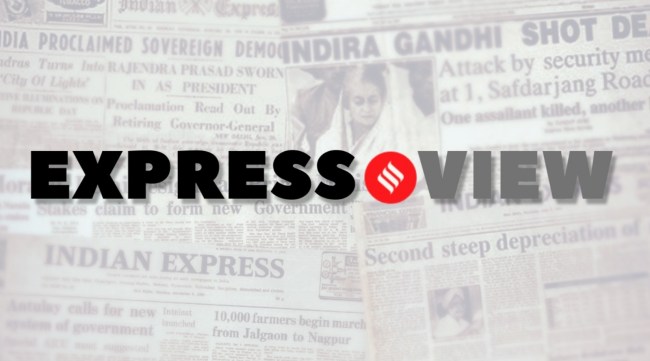Opinion BJP’s rath prabhari circular — the bureaucracy must be neutral and independent
Express View: As the party that rules at the Centre, and in several states, the responsibility is on the BJP to ensure that important lines are not crossed, and the governing principle of non-political domains is given its due respect
 The BJP has a point, the involvement of bureaucrats in ensuring the delivery of schemes is unexceptionable.
The BJP has a point, the involvement of bureaucrats in ensuring the delivery of schemes is unexceptionable. The circular reportedly issued by the Department of Revenue, Ministry of Finance, on the nomination of bureaucrats as “rath prabharis”, for “showcasing/celebration of achievements of the last nine years of government of India through the Viksit Bharat Sankalp Yatra… ” has sparked a political row. Congress has alleged a BJP attempt to politicise the bureaucracy, draft civil servants into government propaganda ahead of elections. Party president Mallikarjun Kharge has written a letter to Prime Minister Narendra Modi, urging this circular’s withdrawal and drawing attention to a similar order of the Ministry of Defence directing soldiers on annual leave to promote government schemes as “soldier-ambassadors”. The BJP has countered Congress outrage with indignation, saying that public service delivery is the government’s task and duty, and why should anyone object to public servants reaching out to the grassroots to ensure schemes’ saturation. The to and fro between the parties frames an important issue — the bureaucracy must be neutral and independent, and especially in polarised times when traditional notions of neutrality are increasingly strained, it is important that it must be seen to be so too.
The BJP has a point, the involvement of bureaucrats in ensuring the delivery of schemes is unexceptionable. The problem, however, lies in the framing of the task assigned to those bureaucrats who will be “rath prabharis” — to “showcase” and “celebrate” government “achievements”. To ask a bureaucrat to serve as “rath prabhari” — where is this assignation in civil service rules? — is more politics than governance. For, this goes beyond the work of implementation and monitoring and shrinks the vital degrees of separation that must be maintained, at all times, and when elections are due, between the government that makes policy, communicates it and takes credit for it, and the faceless steel frame. Civil servants are politically neutral, they do not become members of parties or work for them. They serve all governments, impart an essential stability to governance.
Surely, the notion of a “committed bureaucracy”, that prioritises the interests and agenda of the ruling party, not its job, is not new. Most recently, the controversy surrounding the early retirement of VK Pandian, seen to rise to the unofficial status of Odisha Chief Minister Naveen Patnaik’s most trusted officer, who has been given cabinet rank in the state government the day after, has raised questions. As the party that rules at the Centre, and in several states, the greater responsibility is on the BJP, however, to ensure that important lines are not crossed, and the governing principle of non-political domains is given its due respect. At stake is public trust in the system’s functioning in the long term.



